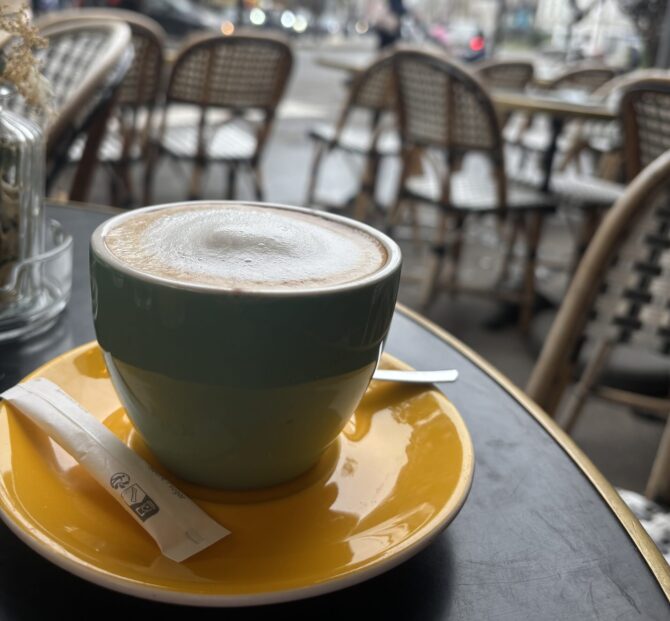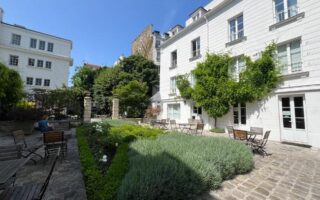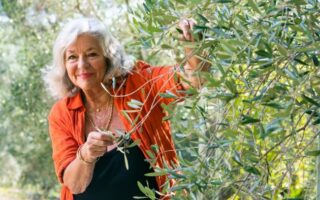Coffee with my Mother-in-Law: A Parisienne’s Café Adventures
In this column, native Parisian Edith de Belleville — author, attorney, and tour guide — shares café tales and discoveries.
Once a month I have breakfast with my friendly mother-in-law in a café located on the border of the 11th and 12th arrondissements of Paris. My mother-in-law knows the 12th well because she was born there and she lives there. And I also know this neighborhood a little because I married her son at the district’s town hall.
For those who are not familiar with the 12th, it comprises The Bastille on one side (where the French Revolution started), the Gare de Lyon train station on the other (to get to the sunny French Riviera), and in the middle, there’s the popular and lively Aligre market (right next to my mother-in-law’s house). And for those who like interior design, between the 11th and 12th arrondissement, the Faubourg Saint-Antoine has been famous since the 16th century for its furniture craftsmen: cabinetmakers, gilders, upholsterers and carpenters. It is precisely in the Faubourg Saint-Antoine that we meet each time.
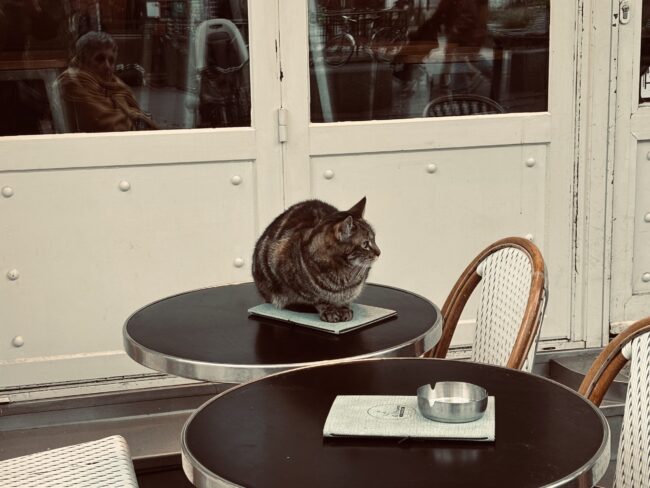
A regular at La Parisienne du Faubourg waiting for his glass of milk. Photo: Edith de Belleville
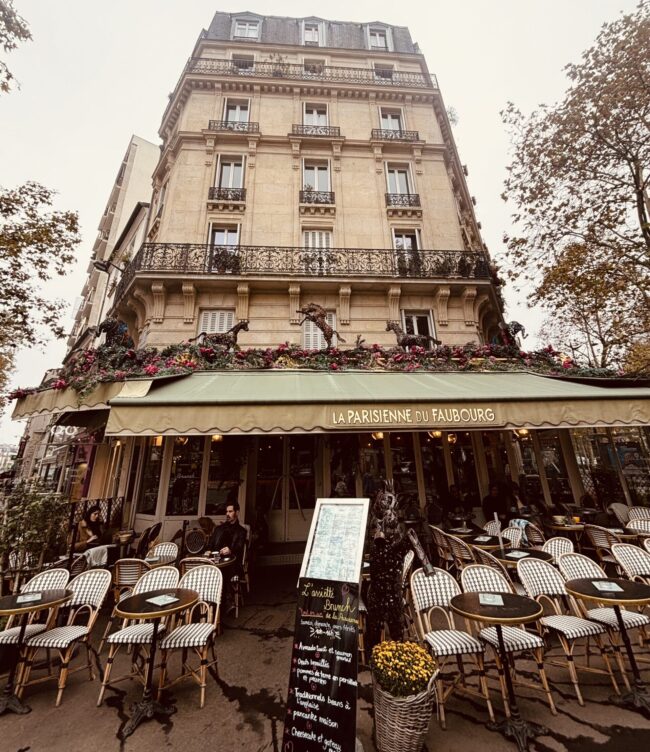
La Parisienne du Faubourg. Photo: Edith de Belleville
We always meet in a café called La Parisienne du Faubourg. We choose the breakfast option at eight euros, and no matter what the season- in winter and summer- we sit on the terrace to watch the Parisians go by. For environmental reasons, the terraces of Parisian cafés are no longer heated, but that doesn’t matter because there are always soft blankets available to warm us up.
“It’s funny that this café is called the Parisian woman,” I say to my mother-in-law, biting into my delicious croissant. “Because the cafés of Paris played an important role for the Parisian woman.”
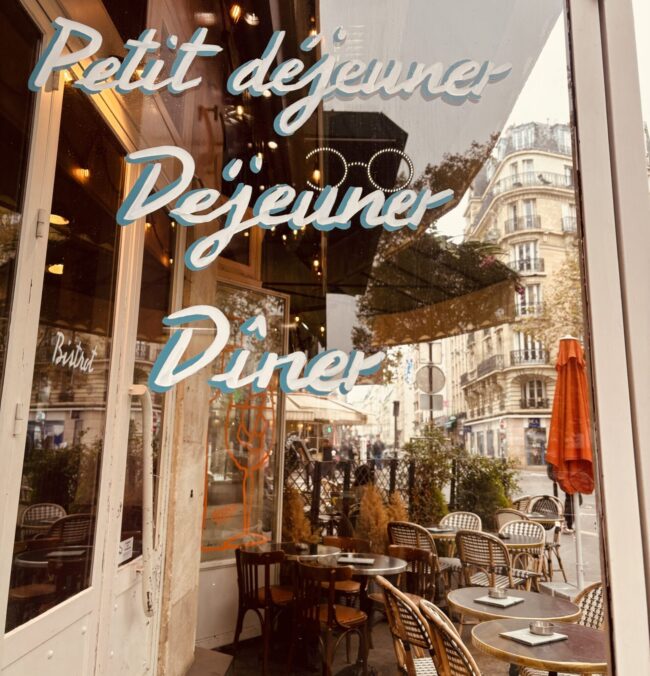
La Parisienne du Faubourg. Photo: Edith de Belleville
While savoring her freshly squeezed orange juice, my mother-in-law listens attentively to my theory. I then explain to her that in the past, a respectable woman could not go to a café without risking being mistaken for a prostitute or, at best, an alcoholic. You only have to look at the paintings of Degas or Manet and you’ll see prostitutes seated at café tables. “We can’t imagine it, but even the simple act of putting on lipstick in public was considered very vulgar then,” I add, discreetly pointing to our young and elegant table neighbor who is adjusting her makeup in front of a pocket mirror.
With the Roaring Twenties, mentalities changed. Going to a café alone became a way for Parisian women to emancipate themselves, to have a lifestyle that demonstrates their modernity.
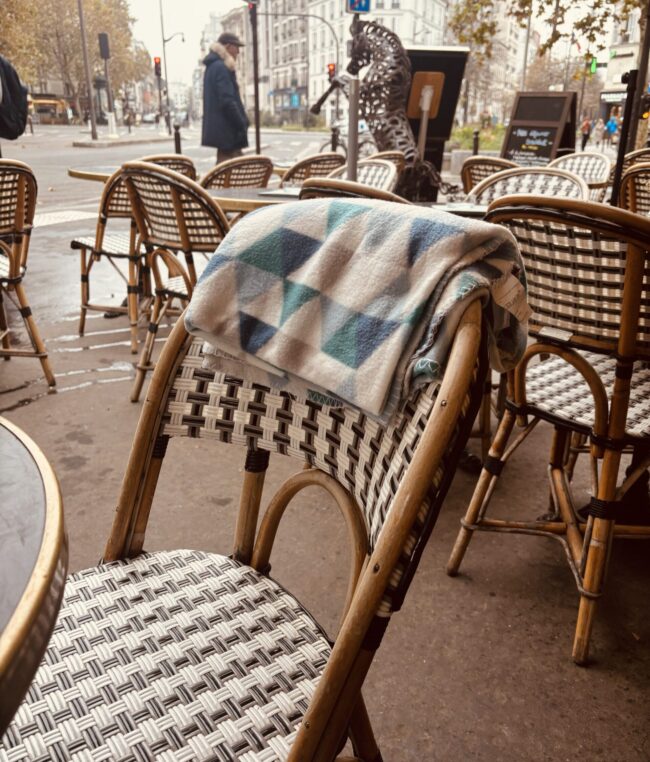
Blankets available on the cafe terrace. Photo: Edith de Belleville
Alex, the friendly waiter, brings us our hot drinks. While taking a sip of my creamy café au lait, I point to the sign visible through the window of the terrace. Then I say, “Well, speaking of emancipated Parisian women…”
The sign indicates that the Violette Leduc municipal library is a stone’s throw from our café. I know Violette Leduc’s story well. I saw a film about her 20 years ago that had a big impact on me. This film tells the story of the efforts of Violette Leduc – a poor woman, born an illegitimate daughter, later a depressed lesbian – to become a renowned author thanks to her autobiographical writings. In the 1950s, believe me, it was not a given.
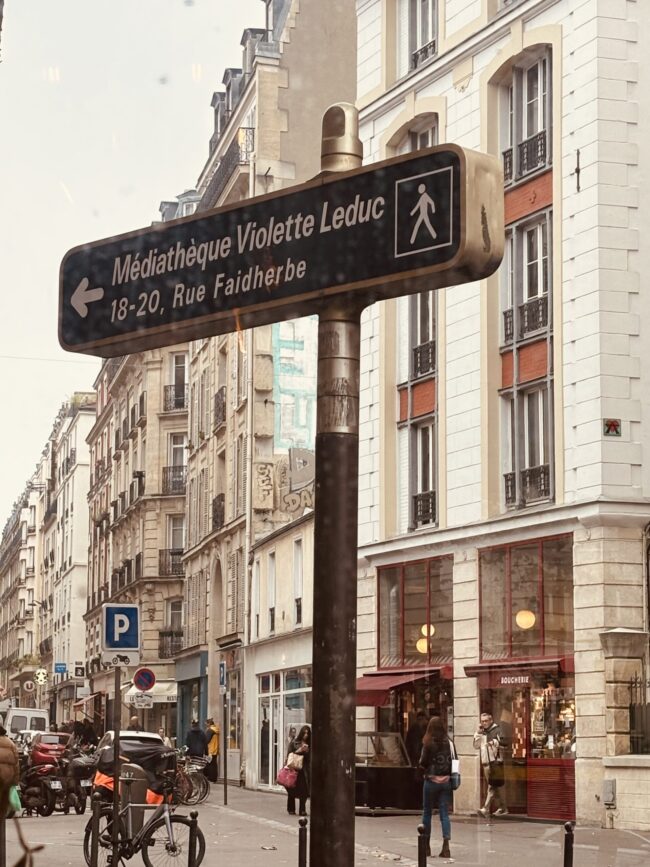
The sign for the Violette Leduc library. Photo: Edith de Belleville
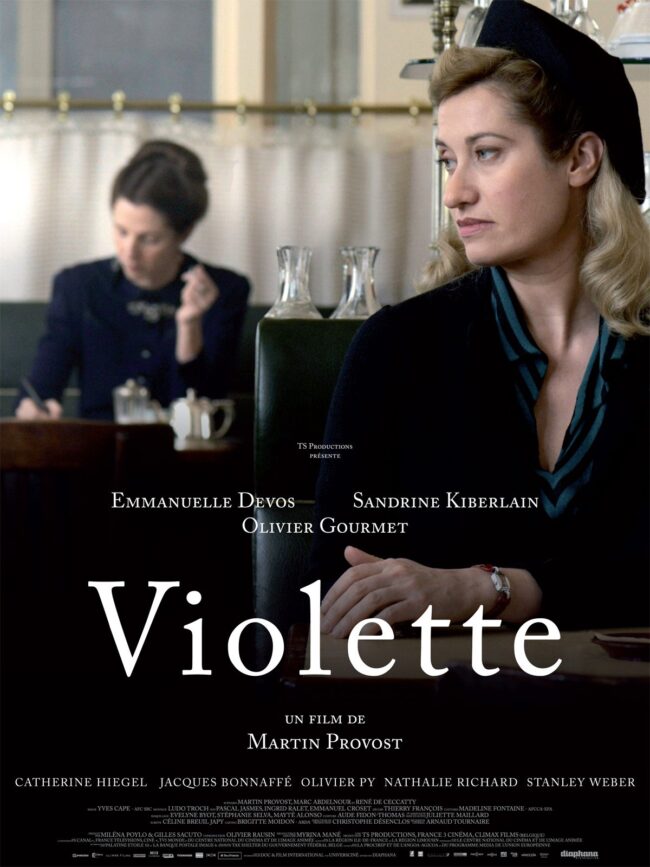
The poster of the film “Violette ” with Emmanuelle Devos and Sandrine Kimberlain playing Simone de Beauvoir
It was Simone de Beauvoir who encouraged and supported her. In this film, the scandalous writer is played by Emmanuelle Devos and Simone de Beauvoir by Sandrine Kimberlain, two talented and popular Parisian actresses. Evoking Simone de Beauvoir, my mother-in-law puts down her hot chocolate and says:
“Ah, Simone de Beauvoir! That’s from my time! I remember seeing her on television in the 70s. She explained that women are not born feminine and sweet, with pink as their favorite color. It’s because of society and their surrounding environment that they become this way. And it is she who said this famous phrase…”
And suddenly, without even consulting each other, we exclaim at the same time: “On ne naît pas femme: on le devient.” (“One is not born, but rather becomes, a woman”.) Hearing us, our young neighbor turns to us and gives us a knowing smile.
DETAILS
La Parisienne du Faubourg
1, rue Faidherbe, 11th arrondissement
Tel: +33 (0)1 45 31 83 27
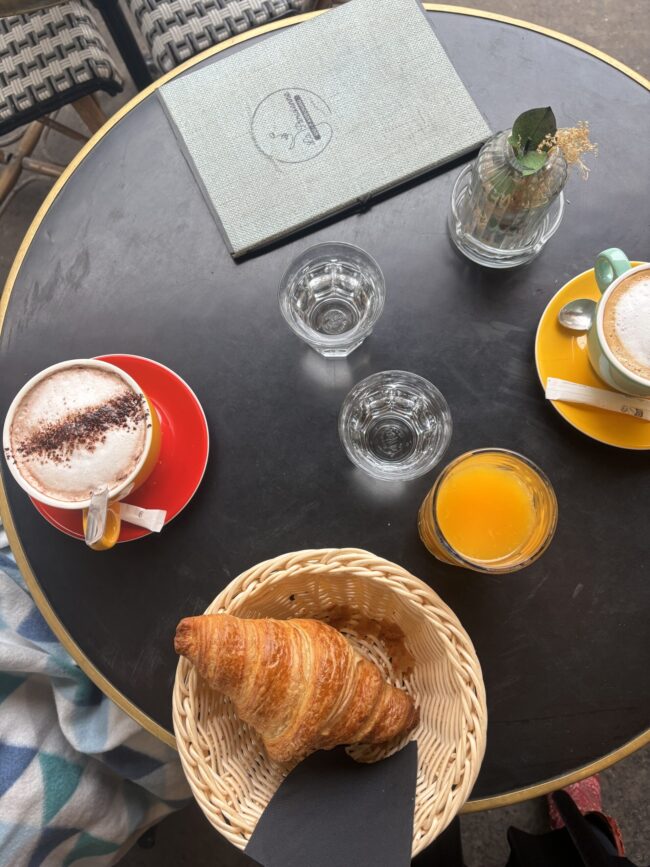
Breakfast at La Parisienne du Faubourg. Photo: Edith de Belleville
Lead photo credit : Café au lait at La Parisienne du Faubourg. Photo: Edith de Belleville
More in Cafe, Faubourg Saint-Antoine, Simone de Beauvoir, Violette Leduc
